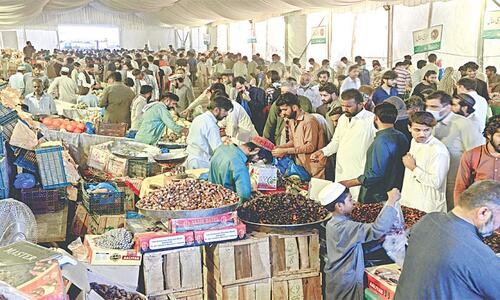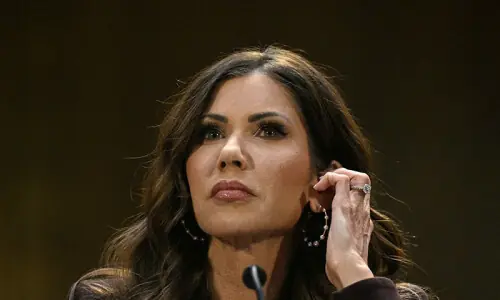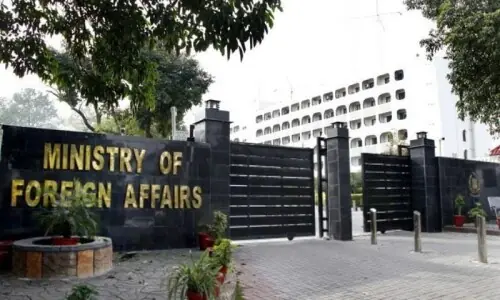As the Kaamai winds recede, fishermen in Balochistan’s small town of Gadani prepare to venture out into the sea by loading fuel barrels into their wooden boats. Kaamai winds blow from the southeast towards the sea and normally continue for three to seven days. But frequent and abrupt weather changes have now triggered unexpected spells of the Kaamai, leaving these fishermen unsure of whether they can safely go fishing.
The fishermen are reluctant to frequent the sea as they did before, owing to the weather and tidal changes brought about by climate change. Fishermen navigate the uncertainties they encounter on the sea and predict weather changes using traditional techniques and skills. However, these are increasingly proving to be an obsolete mode of predicting sea levels and storms due to the pressing issue of climate change.
Anxiously watching the young fishermen preparing for the sea, from his seat on a stone a little distance away, sits 70-year old Wahid Bakhsh. With more than 40 years of fishing experience, the now retired Wahid has earned recognition among his fellow fishermen for his exceptional fishing skills, especially in the precarious months of June and July, when the sea rises and waves tower high. He also invented the hand-made foamed boat known as the taapo.
“Taapo has space only for one fisherman,” explains Wahid, “but fishing on the taapo is the only solution when the temperature is too high, which causes high tides to jolt wooden boats. It can survive the high tides, but even if it gets submerged, the fisherman can hold it firmly and swim back to the shore. Fishing is a challenging task on the taapo as it floats rather fiercely.”
Pakistan’s coastal fishing community is among the most impacted by the effects of climate change. But their traditional methods of predicting weather are also under threat
Indeed, fishing on a taapo is inordinately challenging and risky if a fisherman has not learnt the required skills to handle it. And by virtue of being small, taapos can only earn fishermen a meagre amount of Rs500-700 from their catch.
According to a World Bank estimation, Pakistan ranks among the 10 most affected countries by climate change. The fishing community, because of its direct confrontation with climate impacts, are one of the many vulnerable groups.
This makes Majeed Motani more concerned about his community. Motani is currently president of the Fisherfolk Forum Karachi and lives in the fishing community village of Ibrahim Hyderi.

Having embarked on his fishing journey when he was just 15 years old, and having been in the sea for more than 40 years, Motani’s folklore techniques — used to quite accurately predict changes in weather while at sea — are a reference point to fathom climatic change and its impact on his community.
“Fishermen in the past had adequate skills to forecast temperatures and changes in weather,” he says. “Fishermen link high temperatures on summer days with chalia [a period of 40 days], which is determined by the appearance and disappearance in the west of a cluster of 12 stars called katiyun in Sindhi.
“The cluster of these 12 stars disappear around the 10th of May. This means katiyun has set and the chalia — 40 days with high temperature — has started. During this period, fishermen stop fishing. After the chalia, when the katiyun appears in the west again, it is seen as the beginning of lowered temperatures,” Motani tells Eos about the folklore techniques to predict weather changes.
According to Motani, after the katiyun disappear, fishermen start to prepare for the onaro, a Sindhi term referring to darkness. In their parlance, onaro refers to a time period of three months with no catch. Following the onaro, the fishermen start preparing for the catch from around the 15th of August.
Applying a similar technique to predict winter, fishermen wait to glance at the first star of a cluster of 40 stars (kundi) emerging in the west before sunrise. The cluster is named kundi since it has the shape of a fishing hook, and the appearance of the first star marks the beginning of winter.
However, what worries Motani and his community is that these reliable folklore techniques are becoming obsolete in the face of a rapidly changing climate. Since climate change has taken a high toll on the sea patterns and the weather, their skills can no longer accurately predict changes in temperature, which fluctuate frequently.
Talib Kachi, another veteran fisherman, believes that many factors are altering the climate in the coastal areas, including human activities. He sees a steep decline in the variety of fishes. For instance, out of the 30 to 35 varieties that once existed, many have gone extinct.
“The Indus delta has been home to mangrove forests,” he says. “Today, there is a significant decline in their number. These trees were home to a variety of shrimps, which fed on the roots of the trees. With the chopping of these trees, their habitats have also been destroyed.”
Another factor for the changes, Kachi shares, is the erosion of the Indus deltaic region, caused by water mismanagement and the construction of upstream dams, which has drastically reduced sediment transportation downstream. This, he says, has allowed sea intrusion into the delta.
A report published by the United States Agency of International Development (USAID) in 2018 revealed that the Indus delta had shrunk 92 percent since 1833. Since the 1990s and until 2016, the mangrove cover has also been reduced from 32 percent to 10 percent.
It is not only the delta which has shrunk, says Motani. The effects of climate change have also resulted in a reduced catch in the duration of the season that used to be suitable for fishing.
“Until a few years ago, we waited till 15th August to return to the sea for fishing,” says Motani, “but now the temperature fluctuates for another month, holding us back until 15th September.”
Afia Salam, a climate change activist and member of the National Climate Change Council, tells Eos that there are two kinds of climate change impacts the coastal belt has been grappling with. First, the sea-surface temperature has increased, which has resulted in an increase in the incident of sea storms as well as their ferocity.
The second impact, according to her, is the mismanagement of the Indus River water and the construction of upstream dams, which has hampered water flow at Kotri Barrage and the transportation of silt down the deltaic region that has resulted in sea intrusion.
“The problem has been identified and everyone knows it,” she says. “We have to adhere to the Water Apportionment Accord of 1991 to keep the environmentally necessary flow of water downstream of the Kotri Barrage so that it reaches the Indus delta, allowing silt to repair it.”
Talib Kachi and Majeed Motani share similar concerns. Kachi points out that the deltaic area of the Indus once had fertile lands that sustained livelihoods for the farming community. Riverine fishing was not the only profession prevalent in the Indus delta.
“Once the fertile silt stopped coming down, fertile lands were taken over by the sea and farmers were pushed to adopt fishing as their profession,” Kachi explains.
Motani remembers the registration number of his grandfather’s wooden boat, used before even Pakistan’s creation. The number of the boat was 1,529 and it was the last boat registered, which was indicative of the total number of fishing boats on the coast. Today, the coast has been overburdened with more than 20,000 boats, fishing day in and day out with no pause.
“The increase in the number of boats has impacted the coast and the fish-catch,” says Talib. “With such a huge force of boats and climate impacts already knocking at the community’s doors, the entire community might go down the vortex of displacement and starvation.”
The writer is a member of staff and part of the Oxford Climate Journalism Network (OCJN).
He tweets at @Ayaz_Jurno
Published in Dawn, EOS, January 29th, 2023


































